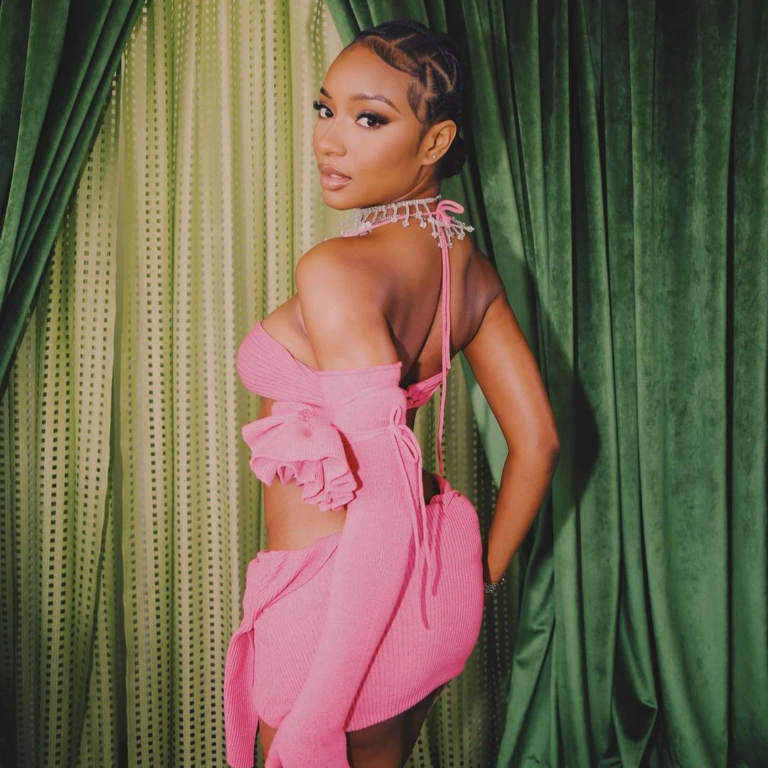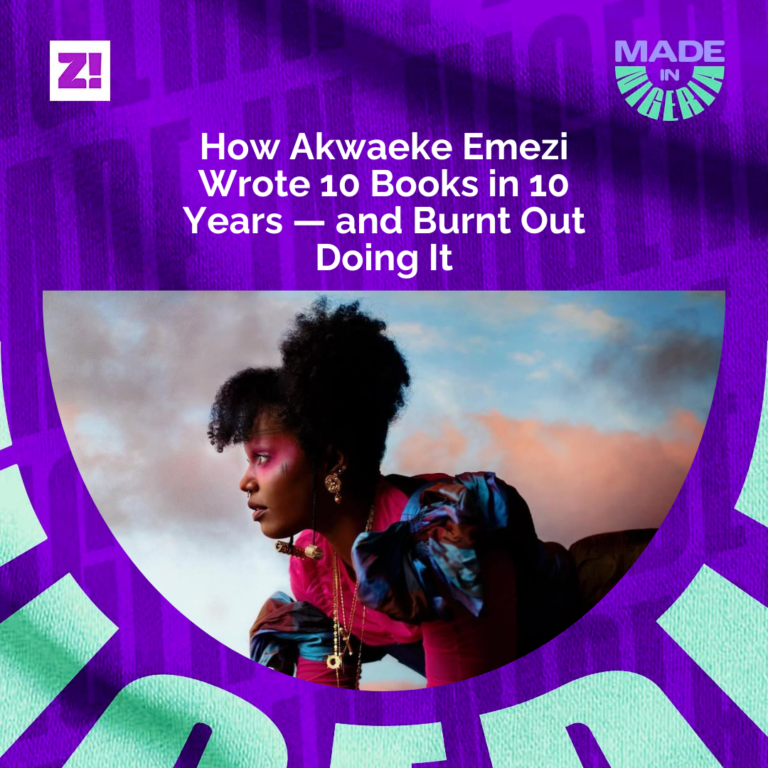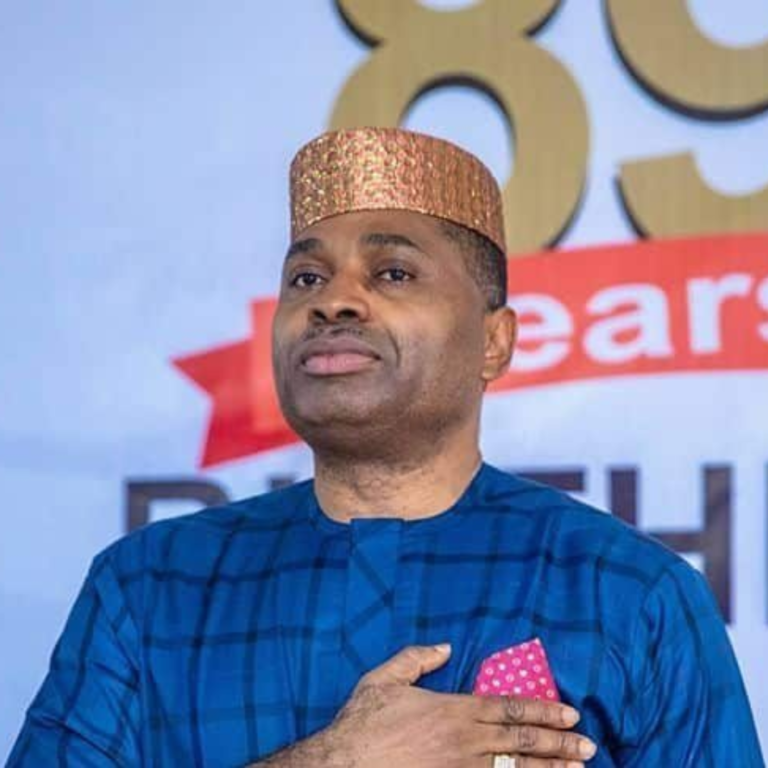When Justin “Ug” Ugonna joined Vine, the short-form video site, he found a world of content creators making dance videos and “African parents be like” skits. Not too long after, he started making similar content. In those days, being a content creator was not as lucrative. There were no travel vlogs and no For You feeds. Ad agencies didn’t dedicate millions to online marketing. Creators made content just for the fun of it.
That was when he met Inioluwa Olu-owotade, who later became famous as Ini Cash. Ini Cash liked his content and followed him. Later, he also became a creator, making rant videos and skits. After years of being online bros, in 2017, they met up to shoot a short film together. Soon after, they became flatmates.
Their careers have complemented each other for years. Justin Ug is a DJ. Ini Cash hosts parties. They both held 9 to 5 until last year, when they decided to focus on their careers as creators squarely. Ultimately, they want to be actors.
This month they launched a YouTube show, The BroBants Show that they hope will show their range. Primarily it is a podcast. But before the podcasting starts, there is a sketch where they do some acting.
In this week’s #MadeinNigeria, they open up on how they go viral without selling controversies, the lessons from their bromance and why they are sure there are group chats where people orchestrate plans to cancel them.
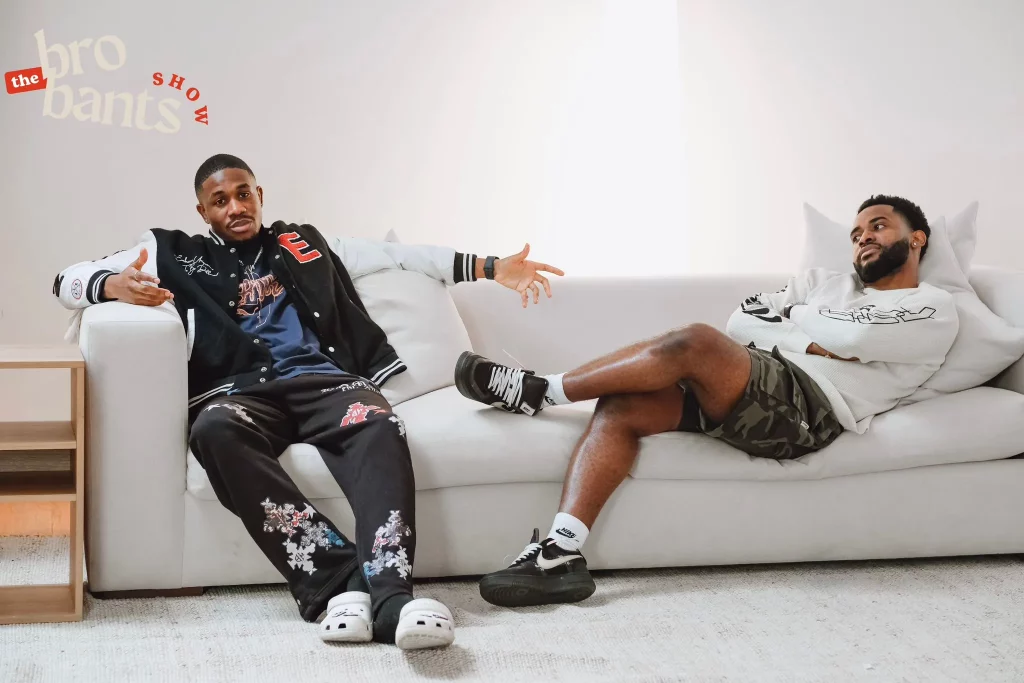
This interview has been edited for clarity and length.
How did you two meet?
Ini: We met each other online. He’d been making content before me, so I was like, “I like what this guy is doing,” followed him, and that was it. We just became friends. We linked up in New Jersey, and he had a short film, and I was part of it. When I came back from deployment, we just moved in together.
Justin: The short film is High School Chronicles. I made it in 2020. That was the first time we worked together, and the first time I met him physically. I just had the script and was thinking about who would be able to play the role. I sent it to him, he liked it, and then we shot it in New Jersey. I didn’t pay him—it was more about creators supporting each other.
What do you like the most about working with each other?
Justin Ug: Seamless. You don’t have to think about it too much. Once we start working we just keep going. We don’t have to be like, “Oh, let’s change it this way.” Even if we need to change something, it’s nothing crazy—it’s stuff that can be done ASAP.
Ini Cash: Even writing the script for the show, we just bounce ideas. He might start writing the script, and I take it from him. It’s just too easy—it’s like a cheat code.
How do you handle conflict?
Justin Ug: We both understand our threshold. Most of the time, we both know we’re joking, so we don’t necessarily take things to heart. If there’s ever anything wrong, we’ll actually be like, “Okay, let’s pause.”
I don’t think we’ve even argued before—that’s how crazy it is. The friendship is just very fluid. You don’t have to think about it too much; it doesn’t feel like you’re stepping on toes. Even if you say the wrong thing, it doesn’t feel like you’ve said the most outrageous thing.
It’s one of those things where issues get squashed before they even happen. There’s no one waiting to bring up something from ten years ago. But honestly, we don’t even have situations where things need to be squashed—it just flows.
Ini Cash: Nothing has really come from a bad place, like a salty place. It’s usually just jokes. It’s in the name of the show—it’s just bants. Thankfully, it has never gotten out of hand, but even if it does, we’ll just talk about it and keep it pushing.
Why did you decide to make a podcast:
Ini Cash: Personally, it was just people seeing us in a new light. I’ve never seen a podcast that looks like this before—one that blends sketches and a pod together from Africans. I think it’s a really dope idea.
A lot of people say it just feels like hearing two friends gist, and that’s exactly what we wanted it to be. A lot of podcasts these days thrive on controversy, but we just wanted to keep it on a banter level. It’s just two friends gisting, yarning, having insider jokes, and bringing their audience along. That’s what we created.
Justin Ug: How we converse on the podcast is not so different from how we speak in person. We’re not looking for any major moment, but if a major moment comes out of our conversations, then so be it.
Is controversy a good or a bad thing?
Ini Cash: It can be both. A lot of times, when I see clips from people’s podcasts, it’s usually controversy. And it gets me thinking, “Oh, what’s my opinion about this?” But I feel like a lot of people do it on purpose. People call it click farming—you already know it’ll bang and get people talking. People don’t care because it’s good for ratings.
But from the beginning, we already said, “Hey, obviously, we’re human, and people won’t always agree with our point of view, but our podcast is not solely based on that.” It’s more about joking. That’s why we have the sketch on the topic we discuss on the podcast. It’s just adding comedy to the topic and acting as a forewarning that this is just bants.
How then do you achieve virality?
Justin Ug: I don’t think I make skits with the hope that they’ll go viral. It would be nice if they did, but I’m making something I just feel like people will like. I’m not necessarily creating content just to go extremely viral.
Even with the podcast, we just want to make something we can watch five, eight years from now and say, “That was a good show.” The conversations are actually good, nothing cringey, nothing forced. But when you start thinking about virality, you start thinking about what to say and how to say it just to click-farm.
When you go in with a clean slate, you just want to make something good. If virality comes from that, then great. At least, at the end of the day, you know it was just you being yourself.
We do want to go viral—that’s the goal—but we want it to happen by just being ourselves.
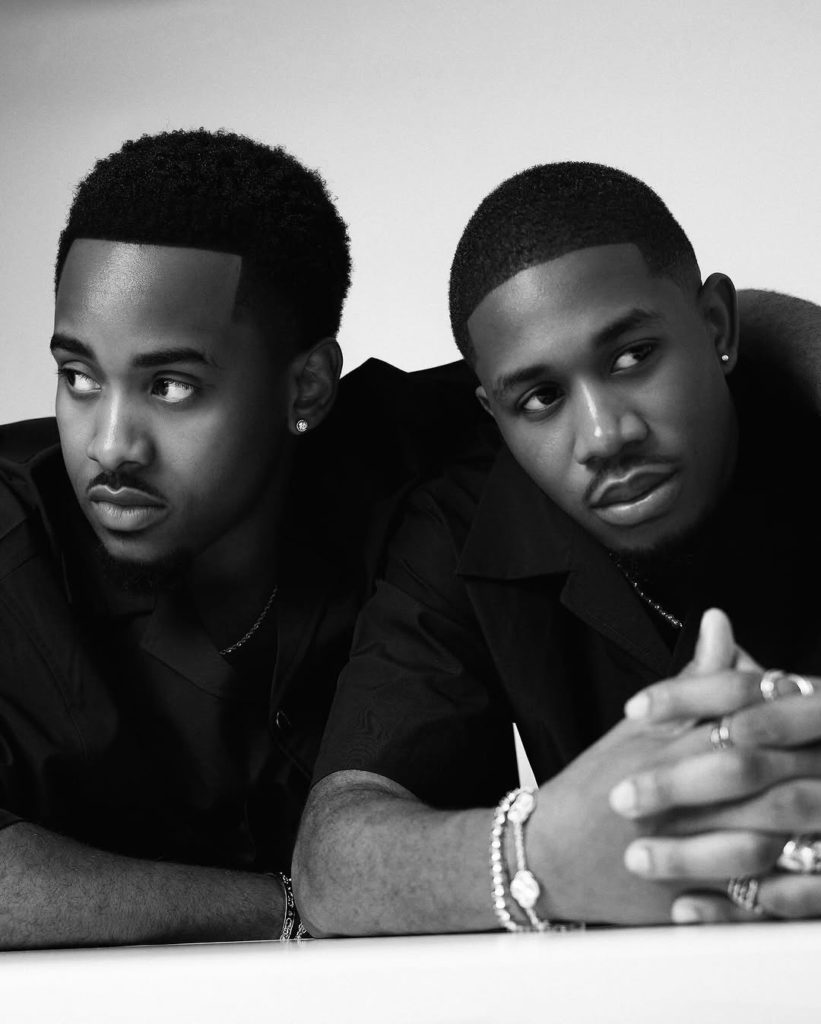

Do you ever delete posts?
Justin Ug: I delete things that people are taking out of context. If I post something and see a certain comment, and I’m like, “Yeah, someone is about to take this out of context,” I delete it.
I can post a skit, and after an hour, I might feel like, “I’m not really feeling this,” and take it down. Most times, when you’re making a skit, you kind of get a feeling about the video even before you post it.
Does the analytics guide what you create?
Justin Ug: If I’m being honest, the only time I really check my analytics is when a brand asks for it. I don’t go there at all—it’s not something I need to see. Content creation now is way different from what it was in 2009 when I started. Back then, during the Vine era, people were making content just because they loved doing it. Nobody was thinking, “How do I get on the For You page?” They were just creating.
That’s how I got into content too—I was doing it just because I enjoyed it. I’ve been very careful not to give in to the pressure of curating content a certain way, like, “Oh, you have to say this at the beginning to catch viewers.”
I’m just making my videos. If they catch your attention from the start, great. And fortunately for us, it’s been working. I don’t think there’s any need to change the formula.
Ini Cash: The thing is, even the most ridiculous content still has an audience. It’s just about finding who resonates with what you’re making and sticking to that.
If you get tired of making that kind of content, you move on and create something else—that’s why we’re creatives. Regardless, if you stay true to whatever you’re doing, you’re always going to find your crowd. Virality is just a plus.
How do you plan your content?
Ini Cash: The main thing is finding the raw idea. Writing the script is, for me, the hardest part—bringing the conversation together.
The last one we did was about getting dragged, and we were like, “Alright, let’s make it a therapy session.” We imagined if all these people getting dragged actually realized they had a problem and decided to seek help in a meeting. We’re just taking it to the extreme.
Both of us write the script. I can start writing, and Justin comes in to edit and add his own ideas, and vice versa.
What’s your structure for making the show?
Justin Ug: The production team believes in our writing abilities. They know that they can leave this task to Justin and me, and we’ll deliver a good script. So all we have to do is write the script and send it to production.
Based on the script, production might come back to us with feedback. Sometimes, they ask us to change things because they’re unsure if we can get a specific location or achieve a particular shot. That’s when we go back to the drawing board, think about it, and come up with a solution. It’s not like we’re having long meetings to structure the script—it doesn’t take us long to put together.
Right now, we’re working with a production company. We also have our director of photography and two executive producers. That’s the whole team.
ALSO READ: Izunna Dike on How to Cook Creamy Pasta with Crayfish
What conversations do you hope to elevate with the show?
Ini Cash: We talk about everyday topics—anything and everything. We also bring in our skits and turn them into actual conversations.
Personally, I stay away from politics because I’m in the army, so I don’t think that will ever come up on the podcast. But as long as it’s not too controversial, we talk about it. At the end of the day, it’s just bants—we keep it as light as possible.
That said, we do have some topics that go deep. When I say deep, I mean they’ll make you think—they’re more intellectual. But even with those, we still try to keep the comedy in it.
Is this podcast for men?
Ini Cash: We’re guys, so it’s always going to be from a guy’s perspective. But we’re bringing some female guests on the show because we can’t speak from a female perspective ourselves.
Justin Ug: That wasn’t the goal when we started—to strictly have a male perspective. When we feel like a topic needs a woman’s point of view, we bring in guests for that. We’re not out here trying to tear things down or anything like that. We just wanted to create something people can look forward to.
What do you hope people take away from the podcast?
Justin Ug: I just want people to have a breath of fresh air. A lot of people have talked about the bromance we have, and if that makes others look at their own friendships and think, “This is a really good example, I want to emulate this,” then that’s great. But at the end of the day, it’s just banter. It’s not a physics class where you’re expected to take notes. Though, with some of our topics, you might actually take something home because we do plan to explore conversations like that.
Ini Cash: We’re trying to push conversations around entertainment—movies, TV shows—while also giving people a different perspective on how two Africans live in America. A lot of people don’t really understand that experience. When we share our stories, some people are like, “Oh, I never thought about it that way.” At the end of the day, though, it’s just a comedy show.
Justin Ug: There’s this segment on the show that we plan to do once every season called Therapy Session. We ask each other questions tied to what he just spoke about. When you listen to us, you’ll see that as men, it’s cool to have emotions—that’s why we include the therapy segment. It dives deeper into different scenarios men go through. We cover topics like talking stages, which I’ve done a lot of skits on. So now, instead of just making skits about it, we actually talk about our experiences—how we went through it and how we navigated it.
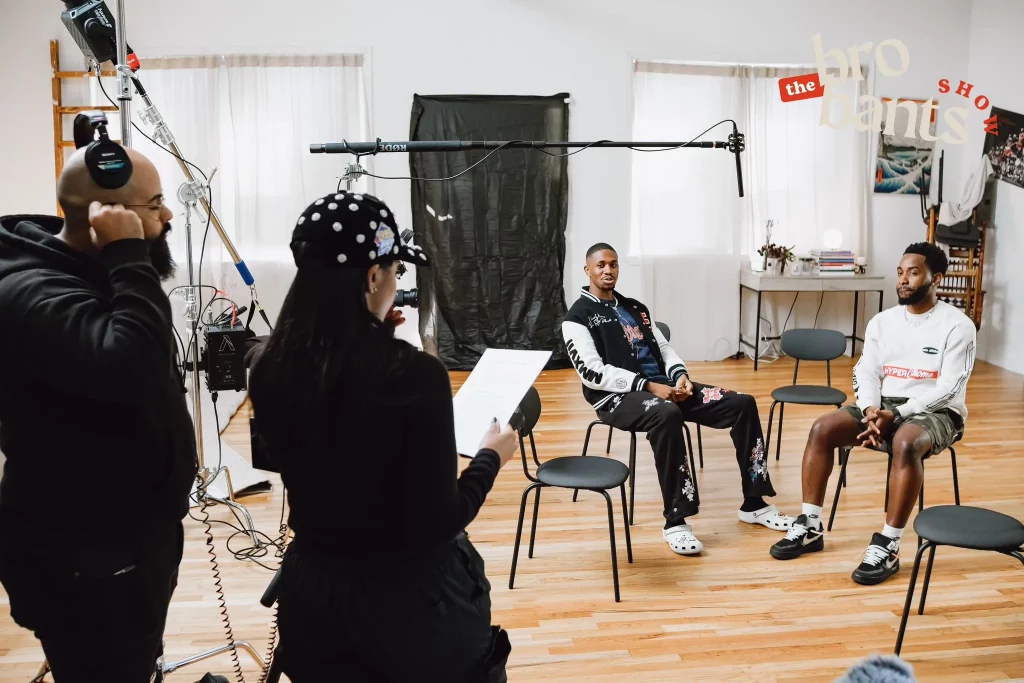
How do you attain financial sustainability as full-time Nigerian creators in America?
Justin Ug: We’re not homeless yet, and that answers the question. Because at the end of the day, how often do you get a DJ gig or an event to host? That’s the thing with not having a consistent source of income—you’re living life on an “if” basis. This month, you could make a certain amount, and next month, it’s way lower. But at the end of the day, we’re not homeless yet. Hopefully, by the next time we do this interview, we can be more assertive—like, 100%.
How do you make it work currently?
Justin Ug: We’ve got good management that makes things work. But I do relate to other creators who say you need a 9-to-5 because, at the end of the day, having that constant source of income is a beautiful thing. You know exactly when you’re going to get paid, and that security helps with things like rent. It’s a good feeling. But once you step out of that zone, you have to push yourself to work even harder just to get back to the level of stability you had when you had a steady paycheck.
Ini Cash: We’re lucky to have good management, but that’s not always the case for content creators living in America. A lot of incredibly talented African creators here struggle because things don’t always work out the way they hope. The reality is that bills in America are often higher than income, and not everyone can afford to take the risk of fully dedicating themselves to what they love.
You said on the podcast that people who drag you are in a group chat. Do you believe that?
Ini Cash: I definitely believe they have a group chat. There’s a space where they drop things and say, “Look at this nonsense,” because you’ll just see them swarm all at once. They think alike, they have their own community, and once something gets posted there, they all go crazy.
That’s what the internet is—herd mentality. People might not have been rocking with you before, but once something picks up traction, they all jump on the bandwagon.
Justin Ug: People are easily influenced. Let’s say you have a close friend on Twitter, and that friend thinks something someone posted is absolute rubbish. You might not have thought it was rubbish at first, but because your friend does, you start questioning yourself—“Why shouldn’t I think that way too?” Before you know it, you find yourself attacking someone, even when you’re not entirely sure you believe in what you’re saying.
What do you think of cancel culture?
Justin Ug: At the end of the day, it’s God. Man can say whatever, but if God hasn’t cancelled you, then you’re good. That’s my dead-ass answer. Sometimes, you’re just like, “What now?” But most times, everything sorts itself out without you even thinking too much about it.
It’s almost inevitable if you’re in the limelight. For a very long time on the internet, I never got into any wahala. I really try my best to avoid it. If there’s something I think about, it’s that part—I really do not want to get into any issue. But it has happened to different people. At some point, people are going to try and find a way.
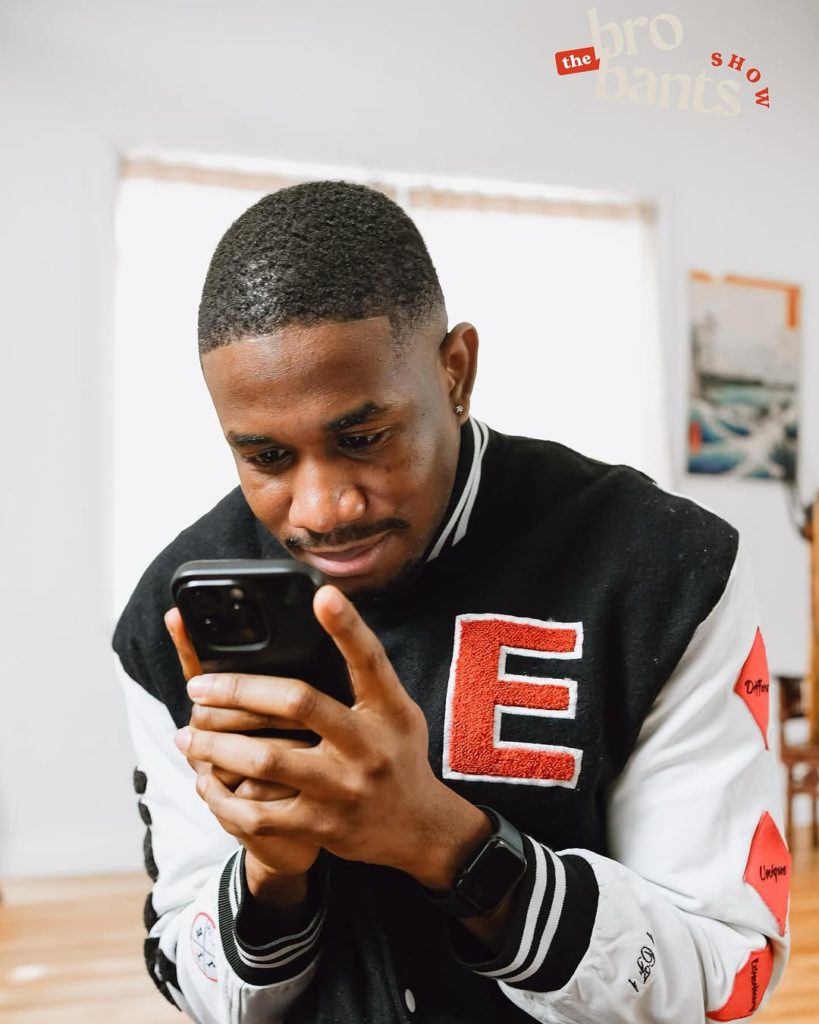
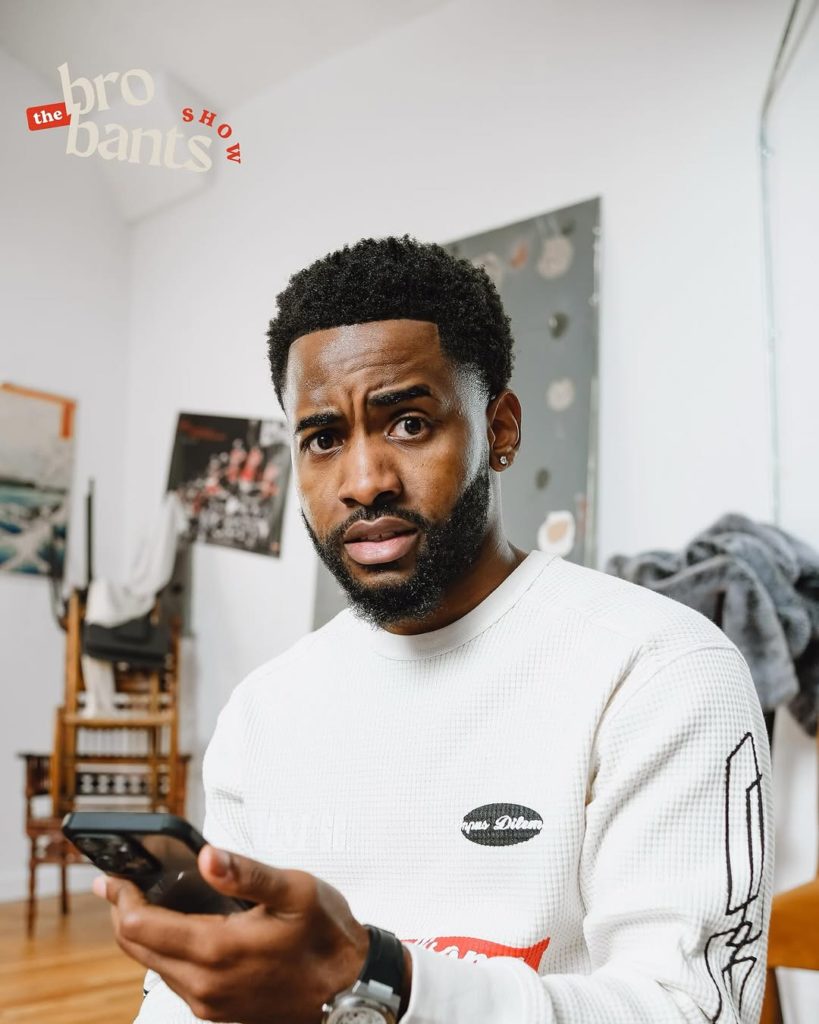
Where do you see yourself in five years?
Justin Ug: Honestly, for me, this show should have taken off by now. We want to act—that’s our end goal. So hopefully, we’ll have a couple of major films out, and things will be way better than they are now. And we’ll also have been able to help other people who are in our position as well.
Ini Cash: I just follow what God says—I’m a big believer. But acting is definitely one of my top interests. Before that, though, we can keep building our show, which already has acting in it, so people can see what we can do.
Zikoko readers are currently giving feedback about us this year. Join your voice to theirs by taking this 10-minute survey.

